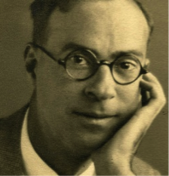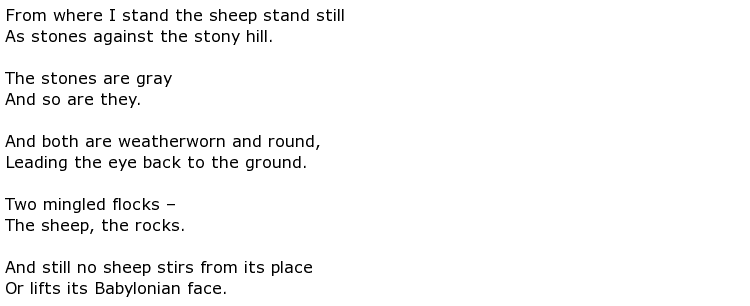 Now here is what can best be described as a somewhat understated American poet. Robert Francis lived a long life spanning most of the 20th century and wrote mostly gentle, lyrical poetry. There were no strident, political statements from him; no revolutionary ranting. He just wrote as clearly and concisely as he could and many have compared his style to that of Emily Dickinson and Robert Frost. In fact, Frost was a great influence on him and one quote sums up his friend very well. Frost said that Francis was “of all the great neglected poets, the greatest.”
Now here is what can best be described as a somewhat understated American poet. Robert Francis lived a long life spanning most of the 20th century and wrote mostly gentle, lyrical poetry. There were no strident, political statements from him; no revolutionary ranting. He just wrote as clearly and concisely as he could and many have compared his style to that of Emily Dickinson and Robert Frost. In fact, Frost was a great influence on him and one quote sums up his friend very well. Frost said that Francis was “of all the great neglected poets, the greatest.”
Robert Francis was born in August 1901 in the small town of Upland, Pennsylvania. He was a studious boy who won a place at Harvard, graduating from there in 1923. His first collection of poetry in 1936 called Stand Here With Me was a well-received study of nature that many compared to the work of Robert Frost. Although he spent some of his life travelling the world, Francis actually lived in one house for 47 years. He had built a small property himself in 1940 just outside the village of Cushman, near Amherst, Massachusetts, and lived a very simple life here. He called it Fort Juniper.
He spent some time as a university lecturer, both in America and abroad, but his first aim was to be a poet. Even as a young man, fresh out of college, he had the simplistic notion that he could copy the lifestyle of Robert Herrick who cultivated a cottage garden that served all his dietary needs. The idea of growing his food and maybe keeping a hen, and living in rough, working clothes appealed to the young Francis. After all, he could divide his time between writing poetry and keeping up his simple lifestyle and, if he got bored with that, he could always move to the city. That never happened though.
An essay on this very idea was produced at the age of 67 and he called it The Satirical Rogue On Poetry and this was part of a revival in his writing career which had entered a bit of a lull in the 1940s and 50s. The Orb Weaver (1960) was the collection of poetry which brought him back to people’s attention. He used a technique probably borrowed from his friend Robert Frost where hidden meanings were buried in the verse. Thus, the reader would be fooled into thinking that the poem was about one thing when, all the time, Francis was portraying a different meaning altogether.
His was, though, a mostly easy-going, easy to read style which used simple rhyming and metre in its structure. He only once strayed from this style with a long poem constructed mainly in Frost-like blank verse but soon reverted to his tales of nature and the simple things in life, like baseball, or sheep on a hillside. Here is his short poem, simply titled Sheep, which cleverly compares the sight of a flock of sheep to the rocks surrounding them:

He even wrote an almost self-mocking account of the construction of his house in Amherst. The Trouble With Francis (published in 1971) portrayed his frugal lifestyle at the time, showing the reader exactly how he coped with it all, down to the tiniest of details.
While you could never say he was a great American writer he did, nevertheless, pick up awards such as the Shelley Memorial Award (1939) and was recognised by the Academy of American Poets in 1984 for his poetic achievements.
Robert Francis died in Pennsylvania on the 13th July, 1987, aged 85.

